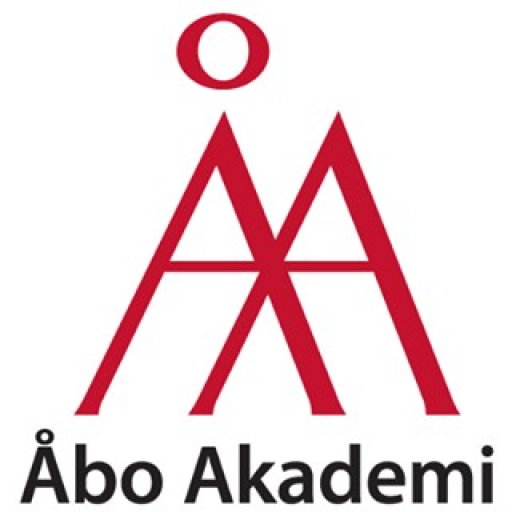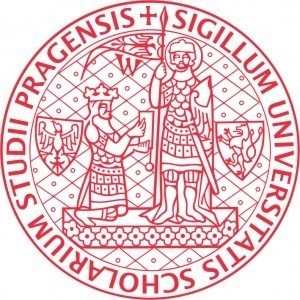Photos of university / #universityofgroningen
The Master’s Programme in International and European Law at the University of Groningen offers a comprehensive and in-depth exploration of the legal frameworks governing international relations and European integration. This program is designed for students who aspire to develop a thorough understanding of the complex legal issues that arise within the context of international cooperation, sovereignty, human rights, trade, and security. The curriculum combines theoretical knowledge with practical skills, allowing students to critically analyze legal challenges and propose effective solutions. Throughout the course, students will engage with a diverse range of topics such as international human rights law, international economic law, law of the European Union, and public international law, among others. The programme provides a multidisciplinary perspective, integrating insights from political science, economics, and international relations to enrich understanding. Students have the opportunity to participate in simulations, moot courts, and internships that enhance their practical legal skills and prepare them for careers in international organizations, diplomatic service, law firms, NGOs, or academia. The faculty comprises renowned scholars and practitioners who are actively involved in shaping international and European legal developments. The university’s location in Groningen offers a unique environment for academic pursuits, with access to extensive resources and a vibrant international community. Graduates of the programme gain not only specialized legal expertise but also the analytical, research, and communication skills necessary to operate effectively in a globalized legal landscape. Whether aiming to work within European institutions, international courts, or national governments, students will find this programme provides a solid foundation for a successful career in international law. The programme can be completed full-time or part-time, offering flexibility to accommodate diverse student needs and professional obligations.
Detailed Course Facts
Application deadline May 01, 2015 Tuition fee- EUR 1951 Year (EEA)
- EUR 7800 Year (Non-EEA)
Duration full-time 36 months Languages Take an IELTS test
- English
Course Content
-
1st year
The first year will give you a strong basis in law that is used within states. All courses approach the fields of law on a conceptual basis and no national system is being discussed as such. The only exception being the course 'Law and legal skills: the Dutch example, which explains what law is and in this course the Dutch example is used as a red thread. Students will also be taught the necessary academic legal skills.
2nd year
-
The second year provides students with a good overview of law between states, both on an international level as within the European Union. The research seminars will combine the legal skills of the first year with the content of the second year courses, enabling students to deliver sound legal arguments.
3rd year
In the first semester of the third year, students study a full semester abroad (at least 25 ECTS in law courses; 30 ECTS in total) at one of our partner universities. Students can pick courses in more specific fields of law in which they would like to specialize. In the second semester students combine all acquired skills and knowledge in producing a Bachelor's thesis (the Interdisciplinary Research Colloquium) on a topic of their choice.
Specialisations / Tracks
- Honours College (honours program)
The Honours College offers talented and motivation students the opportunity to develop to a greater extent.
It entails participating in an extra (honours) programme of 45 ECTS next to students' regular 180 ECTS degree programme plus several other activities that will be undertaken and organized with honours students from other degree programmes.
English Language Requirements
IELTS band : 6.5 TOEFL paper-based test score : 580 TOEFL iBT® test : 92
To study at this university, you have to speak English. We advice you to
take an IELTS test.Requirements
Specific requirements / More information
grade average
On top of providing the Admissions Board with transcripts and diplomas, students are required to a minimum GPA (Grade Point Average) of 70/100, 7.0/10, 3.5/5, 2.75/4 (or equivalent if a different scale is used). For IB diplomas this translates to having at least 30 points.
language test
Applicants whose native language is not English must provide adequate evidence of proficiency in English. The following tests are accepted:
- (international) internet TOEFL (to be sent in through our institutional code 8450): score of at least 92, all sections sufficient (so at least 21 on each section);
- (academic) IELTS Academic (British Council's English Language Test): score of at least 6.5, all sections sufficient (so at least 6.0 on each section);
- CPE, Cambridge Certificate of Proficiency in English;
- CAE, Cambridge Certificate of Advanced English.
Applicants that have an IB or EB diploma, SAT or IGCSE can, upon their request, be exempt from taking one of the English proficiency tests mentioned above under certain conditions. You can check http://www.rug.nl/(...)mission-requirements for these specific conditions.All students should always apply for such exemptions though. It is the Admissions Board that decides on these matters.
reference letter
Applicants must provide for two references from a lecturers from his/her pre-university education who has detailed knowledge of their academic records. The referee has to send the reference letter directly to the International Office. Open testimonials will not be taken into consideration. The reference should be printed on official paper and be signed by the referee.
written request
Applicants must send a letter in which they motivate why they want to participate in the LLB programme (max. 1000 words). The letter should be written by the applicants themselves; it is not allowed to submit an (official) translation.
other admission requirements
Curriculum vitaeAll students should meet the admission requirements.For more information about (and a full list of) the exact admission requirements, please check: http://www.rug.nl/(...)mission-requirements
Work Experience
No work experience is required.
Related Scholarships*
- Academic Excellence Scholarship
"The Academic Excellence Scholarship can provide up to a 50 % reduction in tuition per semester. These scholarships will be renewed if the student maintains superior academic performance during each semester of their 3-year Bachelor programme. The scholarship will be directly applied to the student’s tuition fees."
- Alumni Study Travel Fund
Scholarships for students who are already attending the University of Reading.
- Amsterdam Merit Scholarships
The University of Amsterdam aims to attract the world’s brightest students to its international classrooms. Outstanding students from outside the European Economic Area can apply for an Amsterdam Merit Scholarship.
* The scholarships shown on this page are suggestions first and foremost. They could be offered by other organisations than University of Groningen.
The Master's Programme in International and European Law at the University of Groningen offers students a comprehensive understanding of the legal frameworks that govern international relations and European integration. Designed for students interested in international law, EU law, human rights, and conflict resolution, this programme provides an in-depth exploration of both theoretical concepts and practical applications. The curriculum includes core courses in international law, European Union law, human rights law, and legal research methods, allowing students to develop a strong foundation in legal analysis, critical thinking, and legal drafting skills. Additionally, students have the opportunity to tailor their studies through elective courses, which may cover topics such as international economic law, environmental law, or security law. The programme emphasizes a comparative and multidisciplinary perspective, integrating insights from political science, economics, and history to enrich students’ understanding of the legal issues faced by international and European institutions today.
Students are encouraged to participate in moot courts, internships, and international conferences to gain practical experience and build professional networks. The University of Groningen boasts a strong reputation and extensive connections with international law institutions, NGOs, and governmental agencies, providing students with valuable opportunities for internships and employment after graduation. The programme is delivered through a mix of lectures, seminars, case studies, and group projects, fostering active learning and critical engagement. Graduates of this programme are well-equipped to pursue careers as legal advisors, policy makers, diplomats, or researchers in international organizations, law firms, or governmental bodies. The Master's programme aims to prepare students not only for professional success but also to contribute meaningfully to the development and promotion of justice, rule of law, and human rights on a global scale. The programme duration is typically one year for full-time students, with possibilities for part-time study, depending on the student's circumstances and university regulations.








